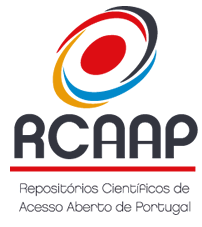The school drop-out at Novo Amparo Village Public School (Londrina) in the evening classes of adult education, Phase II: a study based on the Methodology of Problematization
Keywords:
School drop-out, Evening classes, Adult education, Teaching qualityAbstract
The 44% school drop-out at Novo Amparo Village Public School in Londrina was investigated using the Methodology of Problematization·and a study was carried out based on the following problem: “What would be the reasons for the high rate of a drop-out at Novo Amparo Village Public School in the evening classes of adult education, Phase II?” The following key points came about: the Evening Courses, Adult Education Programs, the Education Professionals, the Student Body, some psycho-social-economical-political and cultural aspects as well as teaching quality. Within each one of these aspects it was tried to find out the contributions from the literature to analyse the problem related to the data collected in its own reality, in arder to find possible solutions. Among the hypothesis for the solution there are those avoiding that the students leave the school for any reason because trying bring him back is more difficult; organizing and/or preparing a pedagogy groups with political will and professional ability; creating na environment for better integration and relationship among students, parents and community at school, together with the teachers who are working in to improve the teaching quality.Downloads
References
BANDURA, Albert. Human Agency in Social Cognitive Theory. American Psychologist. v. 44, n. 9, p. 1175-1184, 1989.
BORDANAVE, Juan Díaz; PEREIRA, Adair Martins. Estratégias de ensino-aprendizagem. 4. ed. Petrópolis: Vozes. 1982.
BRANDÃO, Zaia et aI. apud. PAIVA, Vanilda (org.). Perspectivas e dilemas da Educação Popular. Rio de Janeiro: Graal, 1984.
BROPHY. Jere. Conceptualizing Student Motivation. Education Psychologist, v. 18, n. 2, p. 200-215, 1983.
CARVALHO, Celia Pezzolo de. Ensino noturno realidade e ilusão. 6. ed. São Paulo: Cortez. 1989.
FRANCO, Maria Laura P. Barbosa. Qualidade de Ensino: velho tema, novo enfoque. Caderno de Pesquisa. n. 83. p. 64-70. nov. 1992.
HADDAD. Sergio. Escola para o trabalhador (uma experiência de ensino supletivo noturno para trabalhadores. In: ARROYO. Miguel G. (org.). Da escola carente. à escola possível. 2. ed. São Paulo: Loyola, 1986. p.155-183.
KOCH. Zenir Maria (coord.). Avaliação das experiências de educação de jovens/adultos de Santa Catarina. INEP. Série documental: Relato de Pesquisa. Brasília, n. 13, p. 1-19, out. I993.
LUCKESI, Cipriano Carlos. Avaliação da Aprendizagem Escolar: um ato amoroso. FACED/UFBA. 1994. 10 p. (mimeo.)
NERI, Anita Liberalesso. A Motivação. Do estudante? In: LA PUENTE. M. de (org.). Tendências Contemporâneas em Psicologia da Motivação. São Paulo: Cortez, 1982. p. 203-220.
PAIVA, Vanilda. Anos 90: as novas tarefas da educação dos adultos na América Latina. In: ENCONTRO LATINO-AMERICANO SOBRE EDUCAÇÃO DE JOVENS E ADULTOS TRABALHADORES: Anais. Brasília, p. 33, 1994.
SILVA, Alberto Carvalho da. Pobreza, desenvolvimento mental e desempenho escolar. Caderno de pesquisa, n. 29, p. 7-9, jun. 1979.
SPOSITO, Marília Pontes. Expansão do Ensino e Classes Populares. São Paulo, Suplemento de Ciência e Cultura, v. 32, n. 7.
TOMAZ, Iêda Viana. Introdução. Currículo Básico de educação de adultos fase l e II. 2. ed. [S.I.I : SEED/DESU/PR. ago. 1994. p. 5-7.
ZIBAS, Dagmar M. L. Ensino noturno de 2º Grau: a Voz do Corpo Docente. Caderno de Pesquisa, n. 78. p. 41-50, ago. 1991.
Downloads
Published
How to Cite
Issue
Section
License
Semina: Ciências Sociais e Humanas adopts the CC-BY-NC license for its publications, the copyright being held by the author, in cases of republication we recommend that authors indicate first publication in this journal.
This license allows you to copy and redistribute the material in any medium or format, remix, transform and develop the material, as long as it is not for commercial purposes. And due credit must be given to the creator.
The opinions expressed by the authors of the articles are their sole responsibility.
The magazine reserves the right to make normative, orthographic and grammatical changes to the originals in order to maintain the cultured standard of the language and the credibility of the vehicle. However, it will respect the writing style of the authors. Changes, corrections or suggestions of a conceptual nature will be sent to the authors when necessary.













